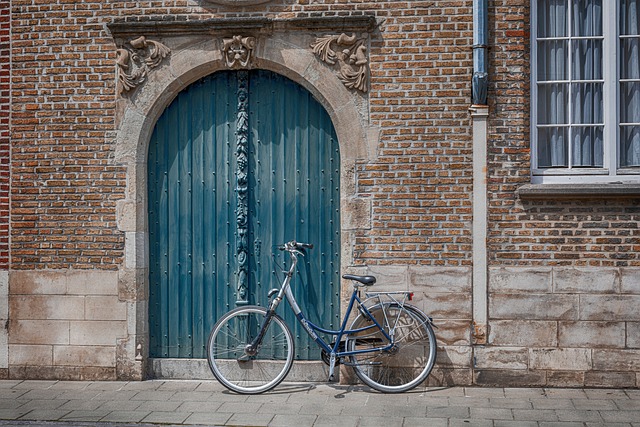House sitting is a mutually beneficial arrangement where homeowners can safeguard their homes against potential security threats and property neglect while they travel, by welcoming responsible sitters who live in and care for the property. For nomadic individuals, house sitting offers free accommodation with the added comforts of home, enriching their travel experiences without the financial burden of traditional housing. This guide provides a detailed examination of the roles and responsibilities involved in house sitting, addressing how to find trustworthy sitters, understand legal and insurance considerations, and maintain positive relationships between sitters and homeowners. It is an authoritative resource for anyone interested in the practice, offering insights on clear communication, home maintenance, and creating a homely atmosphere that benefits both parties. This comprehensive guide ensures readers are well-equipped to engage in house sitting confidently, fostering a secure and positive experience for all involved, and aligning with sustainable living practices within the shared economy. House sitting is an exemplary practice within this economic model, addressing housing and travel needs efficiently while contributing to community ties and reducing environmental impact.
When embarking on travel or relocation, securing a trusted house sitter becomes paramount. This article serves as a definitive resource for both homeowners seeking reliable house sitting solutions and nomadic individuals looking to care for properties in exchange for accommodations. We delve into the nuances of house sitting, from its mutual benefits to the legalities and practical steps involved. Explore the top house sitting platforms that promise peace of mind, learn best practices for creating and reviewing profiles, and understand how to establish clear communication. Whether you’re a homeowner safeguarding your abode or a sitter ready to explore new horizons, this guide equips you with comprehensive insights to navigate the world of house sitting effectively.
- Understanding House Sitting: A Comprehensive Guide for Homeowners and Nomads Alike
- 1.1. Defining House Sitting: The Mutual Benefit of Home and Travel Care
Understanding House Sitting: A Comprehensive Guide for Homeowners and Nomads Alike

When considering the temporary custody of your home, house sitting emerges as a mutually beneficial arrangement between homeowners seeking peace of mind and nomads in pursuit of stable lodging. This comprehensive guide delves into the intricacies of house sitting, emphasizing the key roles and responsibilities involved for both parties. For homeowners, entrusting their property to a house sitter can alleviate concerns about burglaries or maintenance issues while away; the presence of a responsible sitter can deter theft and ensure that your home remains in good condition. On the other hand, nomads who engage in house sitting not only gain access to free accommodation but also enjoy the comforts of home, which can significantly enhance their travel experience. This guide outlines the vetted processes for finding trustworthy house sitters, the legalities and insurance considerations, and the best practices for maintaining a harmonious relationship between sitter and property owner. It is designed to equip readers with all the necessary knowledge to navigate this arrangement confidently, whether they are looking to safeguard their home or seeking affordable living solutions during their travels. Understanding the nuances of house sitting, from setting clear expectations to establishing a sense of home for the sitter, is crucial for a successful and secure experience for all involved.
1.1. Defining House Sitting: The Mutual Benefit of Home and Travel Care

House sitting is a symbiotic arrangement where a homeowner entrusts a trusted individual to live in their residence while they are away, ensuring the property’s upkeep and security. Conversely, the house sitter benefits from temporary accommodation at no cost, often with the added advantage of caring for pets or gardens. This mutual agreement offers a cost-effective and secure alternative to traditional pet sitting services or rental agreements, providing both parties with peace of mind. For homeowners, their home is safeguarded against potential burglaries and maintained in good condition, as if it were still occupied. House sitters gain access to a living space without the financial commitment of renting, allowing them to explore new environments without the constraints of a fixed abode. This arrangement can be particularly beneficial for those who travel frequently or for extended periods, as it enables them to return to a home that is not only secure but also exactly as they left it. The house sitting solution fosters a sustainable lifestyle, reducing the environmental impact associated with vacant properties and unnecessary relocations, while also promoting trust and community engagement between homeowners and sitters. It’s a testament to the shared economy’s potential in providing practical and sustainable solutions for both housing and travel needs.
When entrusting your home to a house sitter or seeking respite for your abode while you travel, reliable house sitting solutions are paramount. This article has illuminated the essence of house sitting as a symbiotic arrangement that offers peace of mind for homeowners and travel opportunities for nomads. By delving into the various facets of house sitting, from its definition and mutual benefits to practical tips and vetting processes, readers now possess a clear understanding of how to navigate this arrangement successfully. Whether you’re a homeowner looking to safeguard your property or a traveler eager to explore without the burdens of housing costs, the guidance provided ensures that you can make informed decisions when considering house sitting as an alternative to traditional pet-sitting or rental services.






